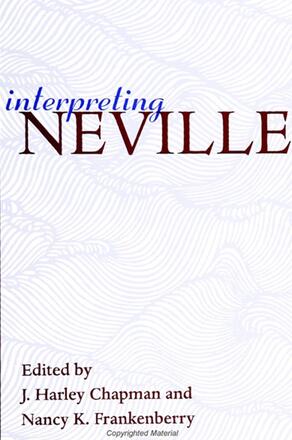
Interpreting Neville
Alternative formats available from:
Distinguished scholars provide the first book-length consideration of the work of philosopher and theologian Robert Cummings Neville, including a response from Neville himself.
Description
Interpreting Neville provides the first book-length treatment of the thought of Robert Cummings Neville, one of the most important and wide-ranging scholars working across the fields of philosophy, theology, and comparative studies today. Contributors assess the systematic structure and methodological unity of Neville's trilogy Axiology of Thinking, provide a postmodern contextualization of Neville's philosophy, and evaluate the critical relation of Neville to the history of Western philosophy. Metaphysical questions crucial to Neville's project are critiqued from different vantage points, theological problems are examined, and the comparative issues outstanding in Neville's understanding of Chinese philosophy are assessed. Enhancing the book is a rich concluding essay written by Neville himself in response to each author.
[Contributors include George Allan, Delwin Brown, J. Harley Chapman, Chung-ying Cheng, Patricia Cook, Robert Corrington, Hermann Deuser, Lewis S. Ford, Nancy K. Frankenberry, David L. Hall, George R. Lucas, Jr. , Robert C. Neville, Sandra Rosenthal, Marjorie Suchocki, Carl G. Vaught, and Edith Wyschogrod. ]
J. Harley Chapman is Professor of Philosophy and Humanities and Dean of the Liberal Arts Division at William Rainey Harper College. He is the author of Jung's Three Theories of Religious Experiences. Nancy K. Frankenberry is Professor of Religion and Stone Professor of Intellectual and Moral Philosophy at Dartmouth College. She is the author of Religion and Radical Empiricism, also published by SUNY Press.
Reviews
"This is a book that is long overdue. By gathering fifteen essays about Neville in one place, it exhibits the extraordinary range of Neville's project. Neville is a truly systematic thinker, one whose work contributes to philosophy, religious studies, theology, and church life. Promoting a fuller appreciation for Neville's scope is the signal achievement of this volume. " — Warren G. Frisina, Hofstra University
"Neville is one of the few systematic thinkers in contemporary American theology or philosophy. This book shows the current vitality of the systematic tradition, while challenging him. " — David Weissman, City College of New York